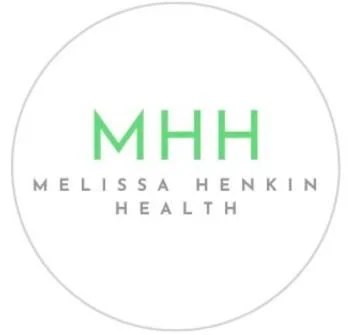Let’s Talk About Bloat, Baby
Bloating.
There’s nothing fun about it, and yet it happens to so many of us, and it can cause discomfort, frustration and embarrassment.
It’s important to understand what is first causing your bloating, as it can be the result of so many factors including a diet heavy in processed foods, eating too quickly and not taking the time to properly chew your food, constant stress, and poor gut health, just to name a few. Certain situations and experiences can also exacerbate this, like the upcoming holiday season. It’s the time of year for heavy dinners, holiday parties, family gatherings, lots of delicious and indulgent food and drinks, and possibly stress and anxiety. All of these can leave us feeling pretty crappy (pun intended) and the bloating that comes as a result certainly puts a damper on getting dressed up to go out.
There are, however, ways to reduce or beat the bloat, and I’m sharing a few of my top tips below. It’s important to remember that consistency is key, and your why for making certain healthy choices (ie: less bloating/clothes fitting better/improved digestion). Continue on while I spill the beans ;)
TIPS TO BEAT THE BLOAT:
Chew Your food. Digestion starts in your mouth both from the physical action of chewing as well as the chemical reaction, which involves the production of saliva. Saliva contains enzymes that help to further break down our food before passing it through the esophagus. Also remember that your stomach doesn’t have teeth, so the more time the food spends in your mouth, the better prepared it will be for your stomach, which means improved absorption of nutrients and less bloating and gas.
Limit processed foods, including bread and wheat. These tend to be more processed and contain higher amounts of sodium, which equates to water retention and bloating. Focus on adding in more whole, nutrient-dense foods and limiting the packaged and processed treats. This doesn’t mean forgoing them completely, just consuming more of the good stuff. while limiting the bloaters.
Increase your fiber intake to help promote digestion and keep things running smoothly, if you know what I mean. However, there is a caveat here- make sure to do this slowly so that your body can adjust to the fiber without overloading your stomach or causing constipation. Start by adding in simple whole foods like fruits and cooked veggies (which are easier to digest than raw), and gradually add more.
With that being said, it’s also imperative to increase your water consumption as you increase your fiber. Fiber needs water in order to be properly digested, aka to avoid constipation, so water is a critical part to increasing your fiber intake and reducing bloating.
Be mindful of harder to digest vegetables like kale and cauliflower. While they’re known as healthy staples, and certainly can be, they can also be much harder to digest and therefore cause more glass and bloating. Try reducing your consumption of these specific cruciferous vegetables, and cook them instead of consuming them raw. The cooking process helps to breakdown the fiber, which makes it more digestible since it’s partially broken down. You may have heard of the FODMAP diet or are familiar with FODMAP foods (fermentable oligosaccharides, disaccharides, monosaccharides and polyols), but these fermentable carbohydrates can be tough for some people to digest, so you might want to check if foods that fall under this category are causing your bloat. Common culprits include onions, garlic, dairy, wheat and lentils. Eliminate the foods that might be the trigger and notice any changes that occur.
Take digestive enzymes before heavier meals to better support your digestive system in breaking down harder to digest foods… along with the food that we end up swallowing and not chewing :). Digestive enzymes are just that- enzymes that help aid digestion, and when taken with these foods or in these situations, they can help move things along and reduce the bloating that would have otherwise occurred.
Take a quality probiotic or synbiotic to help create a healthy gut, which is critical to setting the stage for improved digestion and nutrient absorption and reduced bloating. Think of this as your foundation to creating optimal gut health. Seed DS-01™ Daily Synbiotic is my personal favorite and the one I take every morning. You can try it for yourself and see the improvement, especially in the bloating department. Grab for 15% off with code MELISSAH at checkout.
Practice deep breathing to help manage stress and keep your cortisol levels in check. Try taking a slow deep breath in through your nose for a count of 4 and a slow steady breath out for a count of 6. Lengthening your exhale helps to slow your heart rate and turn on your parasympathetic nervous system- the opposite of fight or flight. Repeat the deep belly breaths 3 times, and see how you feel.

